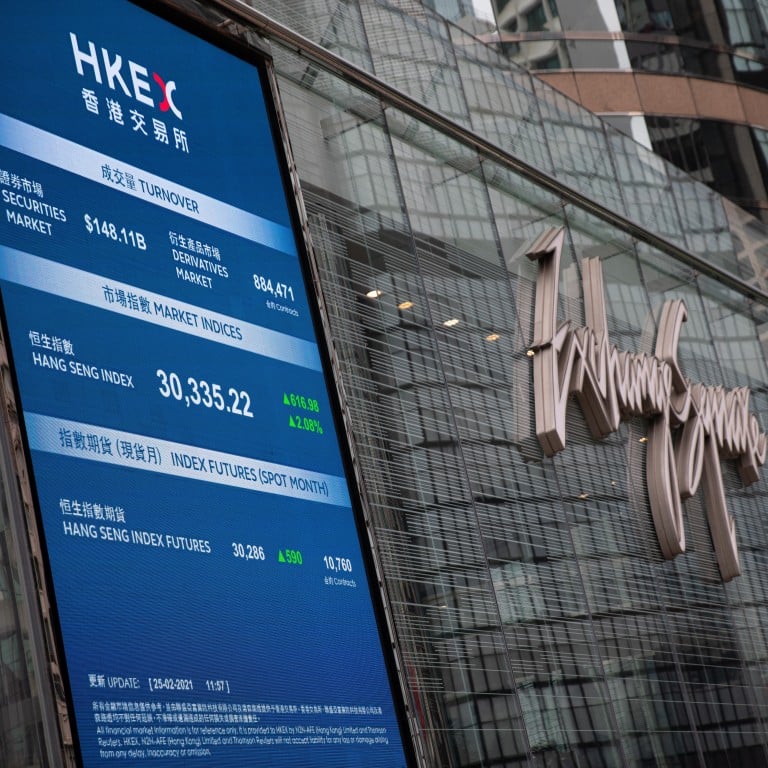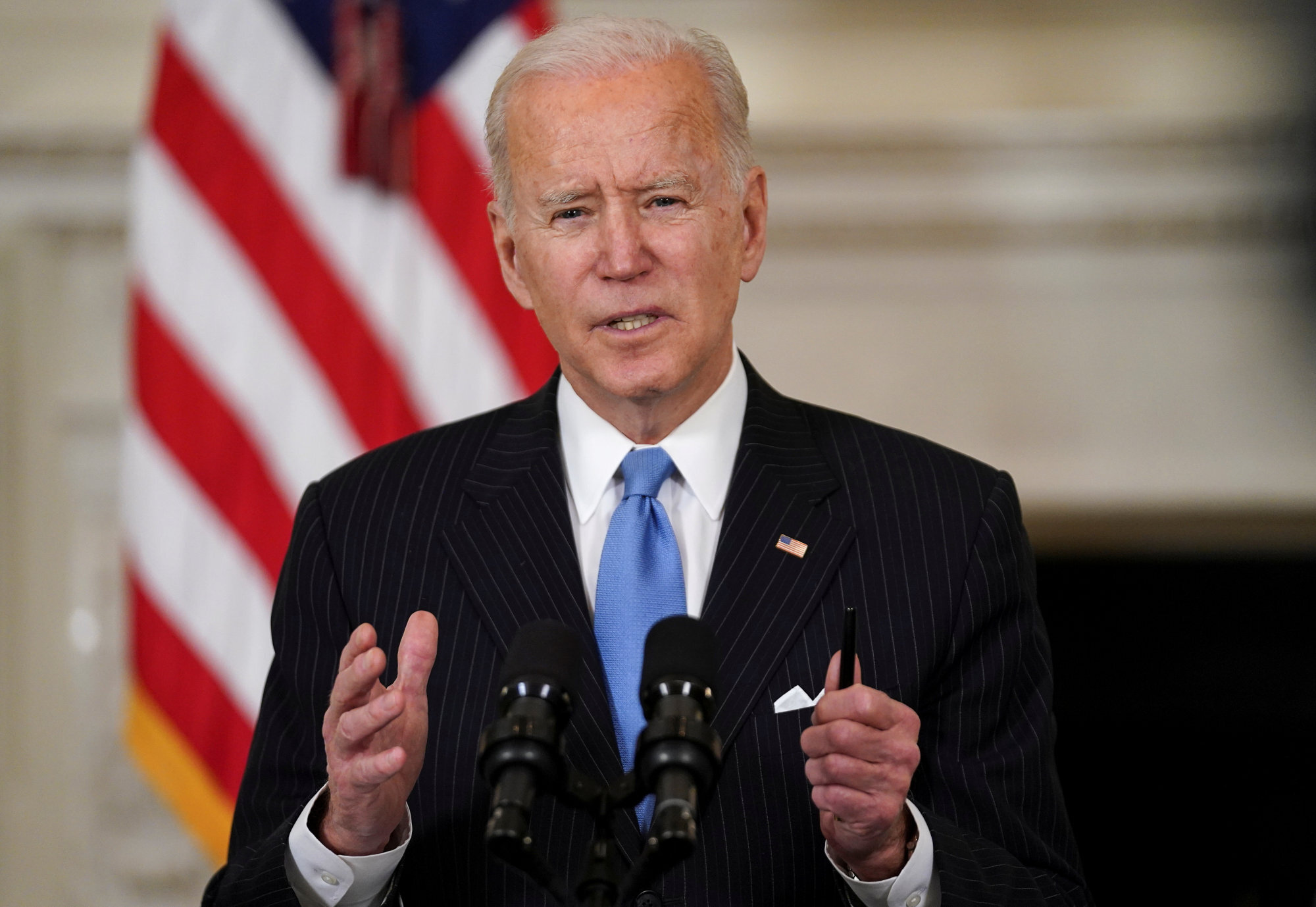
Hong Kong, China markets stumble amid concerns about rising bond yields and high valuation of tech stocks
- The Hang Seng Index dropped 1.9 per cent to 28,540.83, led by declines in WuXi Biologics and Meituan
- Shanghai Composite loses 2.3 per cent, its biggest single day drop since July 24
Hong Kong and China markets retreated sharply after rising at the open, amid growing concern about rising bond yields and high valuation of technology stocks.
The Shanghai Composite fell 2.3 per cent to 3,421.41, after gaining as much as 1.2 per cent, for its biggest single day decline since July 24.
The CSI 300, which tracks the 300 biggest stocks in Shanghai and Shenzhen, tumbled 3.5 per cent to 5,080.02. On the tech-heavy Shenzhen exchange, the Component Index and Composite Index dropped 3.8 per cent and 3.2 per cent, respectively, following a decline in Nasdaq 100 futures.
Overseas investors sold net 8.6 billion yuan (US$1.3 billion) of Chinese shares through the Shanghai and Shenzhen stock connect, the most net selling since September 24, according to data compiled by Bloomberg.
“Despite a rebound earlier today, there was strong selling pressure as investors remain concerned about Treasury yields and the high valuation of tech stocks,” said Stanley Chan, director of research at Emperor Securities.
“Although there was robust economic data and strong exports figures from China, investors are concerned about China’s conservative GDP [gross domestic product] growth targets which shows some uncertainty going forward. This has dampened investors’ confidence [on whether] to enter the market, so there is not a lot of support at high levels,” said Chan.
“Investor confidence will only return if bond yields start to stabilise and dip slightly,” said Chan, adding that the Hang Seng may test the 28,000 level.
New economy stocks led the fall on the benchmark Hang Seng Index. Coronavirus drugs research firm WuXi Biologics paced declines, sinking 9.7 per cent to HK$80.85.
Chinese delivery giant Meituan dropped 8.4 per cent to HK$308.80, while smartphone maker Xiaomi plunged 8.6 per cent to HK$22.35. Tech giant Tencent lost 5.4 per cent to HK$642.50.
The Hang Seng Tech Index of top technology companies dropped 6.4 per cent to 8,081.63.
“What began as a concentrated sell-off in tech stocks and other stocks with high valuations has spread to other sectors. Many investors are dumping their stocks and repositioning their portfolios,” said Chan.
Stock bears grip China markets as slump in liquor, tech stocks show Tesla, bond traders are not alone in their pain
Kweichow Moutai, the world’s most valuable distiller, tumbled 4.9 per cent to 1,960 yuan in Shanghai. A gauge of baijiu-related stocks retreated 6 per cent, according to Xuangubao.cn.
“Selling pressure on new economy stocks has not finished,” said Kenny Wen, wealth management strategist at Everbright Sun Hung Kai. “Bond yields remain at relatively high levels and it seems the Federal Reserve has no intention to control it.”
PetroChina gained 4.1 per cent to HK$3.05, while Sinopec added 1.4 per cent to HK$4.44. CNOOC rose 2 per cent to HK$9.50.
Data released on Friday also showed that US employment surged in February, adding 379,000 jobs, significantly higher than economists’ expectations.

Exports grew by 60.6 per cent in January and February from a year earlier, well above December’s growth of 18.1 per cent and much stronger than the median result of a survey of analysts conducted by Bloomberg, which predicted 38 per cent growth.
Two companies began trading on the mainland bourses.
In Shanghai, Shanghai Yongmaotai Automotive Technology, which manufactures aluminium products for the automotive sector, jumped 44 per cent to 19.30 yuan from its listing price of 13.40 yuan.
In Shenzhen, water supplier Guangdong Shunkong Development rose 44 per cent to 8.44 yuan from its debut price of 5.86 yuan.
Markets in the Asia-Pacific were mixed. Japan’s Nikkei 225 fell 0.4 per cent, while South Korea’s Kospi dropped 1 per cent. Australia’s S&P/ASX200 rose 0.4 per cent.

